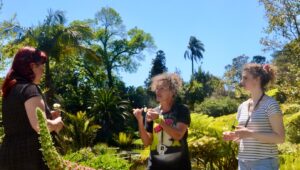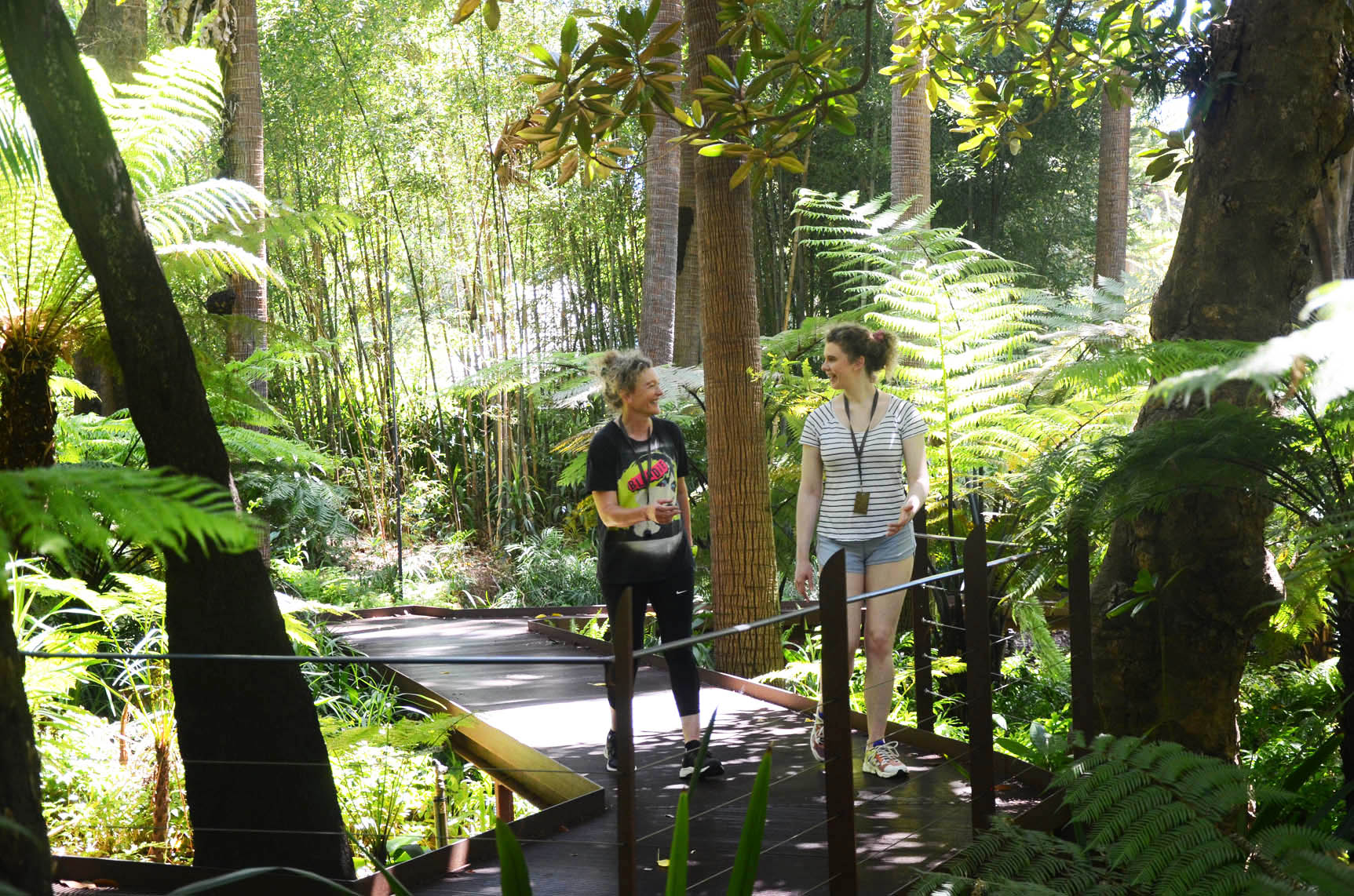Botany Bootcamp: a public program to combat plant blindness
By Dr. Megan Hirst and Georgia Warren
Botany Bootcamp helps put some spring in the step to give plant blindness the boot, and the mind and body a boost as participants power walk between the lush living plant collections at Royal Botanic Gardens Victoria. Botany Bootcamp is a combination of the physical and the mental, taking participants on a magnified journey (using hand lenses), to enter the wonderful world of botany and open their eyes to the evolution of the Gardens’ landscapes.
The world we live in has a lot of green, but what happens when you cannot tell one shade of green from another? And when that green is decreasing at a rapid pace?
People need to be reminded that plants are the main biotic mediators between the physical and biological worlds, as unfortunately, they are often blind to the role plants play in their everyday lives. Defined as the inability to see or notice the plants in one’s own environment, plant blindness refers to the failure to recognise the fundamental role plants play in fuelling life on earth. This is a scary thought. If there is little attention paid to the green world sustaining life on earth, how can people understand and acknowledge the implications of the critical decline in plant biodiversity across the globe? The more time people spend ignoring plants, in increasingly urban environments, the more alienated we all become from the natural world.

To address plant blindness, educators must find ways to peel back the green curtain and reveal the botanical world. Botany Bootcamp is a novel program promoting plant awareness at the local level, introducing basic botany and landscape design to participants from young adults to senior citizens, whilst undertaking moderate-intensity exercise. The benefits of exercising are well known. However, an important gain not often discussed, is that exercise prepares the brain to learn, and makes retaining information easier, a win-win situation. Botany Bootcampacknowledges differences in age and fitness and has found a happy medium to keep participants engaged and together, by undertaking short bursts of exercise followed by a recovery time in which the facilitators present botanical and practical design information. This enables participants to feel supported, get comfortable using a hand lens, identify sections of and broader groupings of plants, and use botanical nomenclature, while enjoying the benefits of a shared outdoor experience.
At the start of a typical Botany Bootcamp session, each participant is given their own hand lens on a lanyard, a map of the Gardens showing the route with the list of plants to be covered, and a handout to assist with using the hand lens and diagrams of plant parts they will examine. The two-hour program encourages people to get active, get up close to plants, and examine and discuss what they see, including the overall form, colour, scent and texture of the plant in its entirety. The way certain features help to differentiate between plant families, and even genera, is illustrated. This enables the participants to relate what they see under the hand lens to the broader scale, when observing the different plants within a landscape.
Introducing botany can help people see relatedness and patterns in plant groups and merging that understanding with landscape design helps participants consolidate what is observed. This encourages participants to start thinking more keenly about the plants they encounter in their daily lives – the key to addressing plant blindness. So, botany and landscape design make a great couple! Together, they assist with understanding plant form and function and meet the programs’ overall aim to increase confidence and get participants inspired to go off and create their own green oasis in their backyard, courtyard, verge, balcony, or wherever their inspiration leads them.
Meg and Georgia would like to acknowledge their colleague Lillian Desormeaux of Programming and Audience Development, RBGV for her amazing work and support behind the scenes. For more information:
https://www.rbg.vic.gov.au/melbourne-gardens/what-s-on-melbourne/
T:(03) 9252 2300 E: rbg@rbg.vic.gov.au
Megan Hirst
Post-Doctoral Fellow – Royal Botanic Gardens Victoria
Georgia Warren
Landscape Architect – The Sustainable Landscape Company

